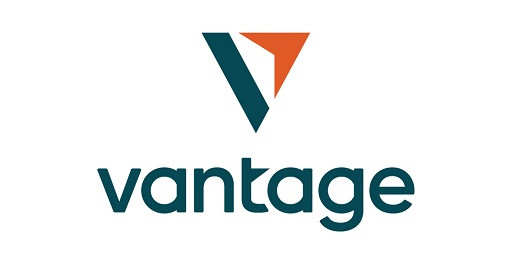Cryptocurrency Concepts: Cryptocurrency and blockchain technology have sparked an international revolution in how we think about and transact with money. Traditional financial systems now face unique challenges that virtual currencies provide an innovative solution to, thus altering our perspectives of wealth and security.
Cryptocurrency, also known as digital money or virtual money, is a decentralized form of currency operating on blockchain technology. This groundbreaking innovation ensures transparency, security, and immutability by recording all transactions on a distributed ledger system.
Cryptocurrency offers many advantages. First and foremost, it reduces reliance on intermediaries like banks or governments by facilitating peer-to-peer transactions without third-party involvement. Cryptocurrencies offer significantly reduced transaction costs and allow faster, more efficient cross-border payments, with quicker settlement times than traditional banking systems.
Furthermore, cryptocurrency also gives individuals greater control of their finances – when using traditional banking systems, funds could easily be frozen or confiscated by external authorities, but with digital wallets protected by advanced cryptographic techniques storing cryptocurrencies safely within them, users have full ownership and control over their funds.
Blockchain technology lies at the core of cryptocurrency’s success. Its decentralized nature ensures no single entity holds complete control of the network, mitigating any risk from fraud or manipulation. Cryptography provides another layer of protection by encrypting transactions and providing anonymity for users.
Blockchain technology extends far beyond financial applications; it has opened the door for various industries to explore its capabilities, such as supply chain management, healthcare records management, voting systems, etc. Blockchain revolutionizes how we trust information in an increasingly digitized world through its transparent and tamper-proof nature. Cryptocurrency offers an innovative alternative to traditional financial systems while harnessing blockchain’s immense power.
Blockchain’s potential to revolutionize various industries is undeniable, offering efficiency gains while increasing security measures. As we navigate into an era where virtual money becomes mainstream reality, embracing this emerging trend must not simply be considered an option but something that must become part of everyday life for both individuals and businesses alike.
How Does Cryptocurrency Work?
Decentralized ledger and cryptography technologies have become indispensable components of modern society with the rise of cryptocurrencies such as Bitcoin, Ethereum, and others. These technologies help facilitate secure and transparent peer-to-peer transactions while protecting privacy.
- A decentralized ledger, commonly referred to as blockchain, lies at the core of this revolutionary system. Unlike traditional centralized systems that depend on one central authority to control information flow, decentralized ledgers operate with multiple computers collectively validating and recording transactions – providing security against manipulation or fraud by no one entity having full control of all of it.
- Cryptography plays an essential part in protecting financial transactions. By employing complex mathematical algorithms, sensitive information is encrypted into codes that only authorized parties can decipher; this ensures privacy and integrity throughout the process.
- Mining processes play a vital role in upholding the integrity of a decentralized ledger. Miners utilize powerful computers to solve intricate mathematical equations that validate new transactions before adding them to the blockchain, incentivizing miners with rewards such as cryptocurrency for their computational efforts.
- Peer-to-peer transactions have become seamless thanks to this technology. By cutting out intermediaries like banks or payment processors, individuals can directly transact using cryptocurrency across borders without interference or delays.
Decentralized ledgers, cryptography, mining processes, and peer-to-peer transactions have revolutionized various industries including finance, supply chain management, healthcare records management, and more. Their benefits are evident – greater transparency and increased protection from fraud or tampering while decreasing intermediary costs associated with intermediaries.
Blockchain Tech in Cryptocurrency – Understanding Its Importance
Blockchain technology has emerged as an innovative solution, promising greater transparency and security for any distributed ledger system. Blockchain’s decentralized design ensures that data is not managed or controlled by one entity, decreasing the risks of manipulation or unauthorized access. Blockchain provides real-time visibility into transactions, creating trust and accountability among participants.
One of the cornerstones of blockchain is its consensus mechanism, which allows multiple parties to agree on the validity of transactions without depending on a centralized authority. This mechanism ensures all participants have an equal say in decision-making and prevents any single entity from exerting control over the network.
Blockchain technology’s combination of transparency, security, and consensus mechanisms make it ideal for various industries like finance, supply chain management, healthcare, and beyond. Blockchain has the power to streamline processes while cutting costs and eliminating intermediaries.
Blockchain technology’s distributed ledger system delivers unprecedented transparency and security while its consensus mechanism ensures fairness and decentralization. With so many potential uses across multiple industries, embracing this innovative technology may enable businesses to operate with greater efficiency and trust in an ever-digitalized world.
Existing Types of Cryptocurrencies Today
Over the years, cryptocurrency has seen an incredible surge in its popularity; Bitcoin (BTC), Ethereum (ETH), Ripple (XRP), Litecoin (LTC) and Bitcoin Cash (BCH) have all played key roles. Their unique features and functionalities offer people looking to join decentralized finance exciting opportunities; let’s delve deeper into why these five cryptocurrencies remain such powerful forces of change within finance today.

Are There Advantages and Disadvantages of Utilizing Cryptocurrencies for Transactions
Today’s digital world demands fast and secure transactions at lightning speed, yet traditional banking systems often fall short with slow processes and high fees that frustrate both businesses and individuals alike. But innovative financial technologies, like blockchain and cryptocurrencies, have brought with them a new era of transactional efficiency that promises quick transactions at minimal fees.
One of the primary advantages of blockchain-based transactions is their reduced fees compared to traditional banking systems. Being decentralized, blockchain-based transactions remove intermediary institutions that charge steep transaction fees – this reduces costs significantly while simultaneously speeding up trade execution times.
Volatility and market fluctuations are addressed via mechanisms built into these technologies. Cryptocurrencies like Bitcoin utilize algorithms that regulate supply and demand to maintain stability in their value; smart contracts implemented on blockchain platforms enable automated execution of agreements without being affected by market fluctuations.No doubt new financial technologies bring their share of security concerns; however, advances have also been made. Blockchain employs robust encryption protocols which make it hard for hackers to tamper with transaction records or gain access to sensitive information.
Emerging financial technologies provide many advantages over older systems, including faster transactions with reduced fees and market volatility concerns. While security measures implemented by these innovative systems must always be acknowledged for progress made; with proper user awareness and ongoing technological innovations, we can unlock their full potential while mitigating risks effectively.
Cryptocurrency Mining: How New Coins Are Produced and Safeguarded on the Network
Cryptocurrency mining has become an integral component of digital economics, so learning its intricate details is vital for any aspiring crypto enthusiast. Two prominent algorithms used for cryptocurrency mining: proof-of-work (PoW) and proof-of-stake (PoS). Each has its own set of advantages and considerations that you must keep in mind when mining crypto.
Proof-of-work algorithms, much like those employed for Bitcoin mining, require miners to solve complex mathematical puzzles to validate transactions and add them to the blockchain. This process demands significant computational power; therefore specialized mining hardware such as ASICs (Application Specific Integrated Circuits) high-performance GPUs (Graphics Processing Units) or efficient cooling systems must also be in place to prevent overheating during prolonged mining operations.
On the other hand, proof-of-stake algorithms work differently; rather than solving complex puzzles, validators are selected based on their ownership stake in a cryptocurrency and verified transactions based on this stake percentage. While this method requires less computing power than PoW algorithms, it requires significant investments in purchasing cryptocurrency tokens. Software requirements for both PoW and PoS mining involve compatible wallet applications that support the specific cryptocurrencies being mined, acting as storage places for coins mined as well as aiding network transaction processes.
Joining a mining pool can also be advantageous to both algorithms. Miners who pool their computing power together increase their chances of successfully validating transactions, thus improving efficiency and increasing rewards to participants. Diving into cryptocurrency mining requires careful consideration of which algorithm – proof-of-work or proof-of-stake – will be employed, along with suitable hardware and software requirements in place; by having this knowledge at their fingertips, potential miners can confidently venture forth on their crypto journey while increasing chances for success in this ever-evolving field.
Impact of Cryptocurrencies on the Financial Industry and Beyond
The fintech revolution has opened the way for groundbreaking advances in cross-border transactions and transformed numerous industries like real estate and supply chain management. One significant innovation to emerge from this revolution is smart contracts powered by blockchain technology which streamline and automate processes while maintaining efficiency, transparency, and security.
Traditional cross-border transactions often entail lengthy paperwork, multiple intermediaries, and high transaction fees – these barriers are now being removed with the introduction of smart contracts in fintech. Imagine real estate deals being executed seamlessly across borders without needing physical presence or extensive legal procedures; smart contracts allow parties to establish trust through code instead of intermediaries thus cutting costs while eliminating potential disputes.
Smart contracts also play an instrumental role in supply chain management. In industries where tracking goods from production to delivery can be tedious and time-consuming, smart contracts provide an efficient solution. Supply chains have become more efficient and transparent by automating contractual obligations such as payments upon successful delivery or penalties for delays or damages, with intelligent contracts revolutionizing real estate transactions.
Traditional real estate transactions involve numerous intermediaries such as agents and lawyers for documentation and verification purposes, yet smart contracts make this task possible through secure digital platforms that instantly verify ownership rights while simultaneously meeting legal compliance.
Conclusion
Cryptocurrency is an exceptional breakthrough that has revolutionized the financial landscape. Operating on a decentralized network using blockchain technology for transaction transparency and security. Cryptocurrencies do not fall under any governing body, making them immune to interference by governments or financial institutions.
With its rising popularity and adoption worldwide, cryptocurrency is revolutionizing how we view money and finance. With its potential for fast and cost-effective transactions and ability to give individuals control over their wealth, cryptocurrencies have emerged as an appealing alternative to traditional banking systems. Although cryptocurrency faces challenges such as regulatory frameworks and scalability concerns, its future looks bright.
As more people learn about cryptocurrencies, they are expected to continue evolving into an integral part of our everyday lives. As we navigate these exciting technological advancements, understanding cryptocurrency becomes essential to staying ahead in an ever-evolving financial landscape. Join this digital revolution and discover the world of cryptocurrencies; an era where financial freedom and innovation coexist harmoniously.



















